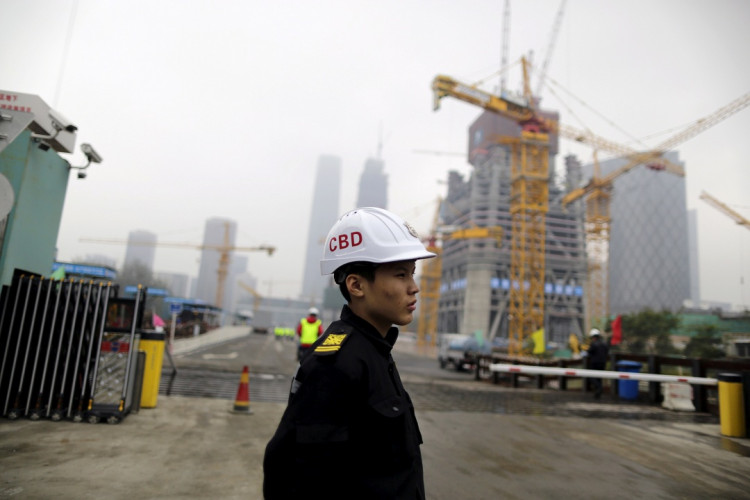China's economy expanded 5.4% in the first quarter of 2025, beating analysts' expectations and bolstered by a sharp uptick in exports as manufacturers rushed to ship goods ahead of U.S. tariff increases. However, economists warn that the world's second-largest economy is on the verge of a significant slowdown as the impact of up to 145% tariffs on Chinese goods takes hold.
Official data released Wednesday showed that China's GDP grew 5.4% from a year earlier, surpassing the 5.1% estimate in a Reuters poll and maintaining momentum from the fourth quarter. On a quarterly basis, growth slowed to 1.2%, down from 1.6% in Q4 of 2024.
March exports surged more than 12% year-over-year, and factory output grew 7.7%, driven by gains in electric vehicles, 3D printers, and industrial robots. But analysts say the strength is temporary. "We think the tariff shock poses unprecedented challenges to China's exports and will set forth major adjustment in the domestic economy as well," UBS analysts said in a note. UBS downgraded its 2025 growth forecast to 3.4% from 4%, citing prolonged tariff exposure.
Beijing's response to President Donald Trump's tariffs has included retaliatory 125% duties on U.S. goods. Still, Washington's trade measures have been more sweeping, with China singled out for the highest levies while over 70 other nations have received temporary reprieves.
Premier Li Qiang this week warned exporters to brace for "profound" changes in the global environment, signaling a shift toward boosting domestic consumption. But indicators suggest domestic demand remains weak. Consumer prices fell 0.1% in Q1, and real estate investment dropped 9.9%, continuing a deep property sector slump that has weighed on household confidence and employment.
Retail sales rose 5.9% in March, up from 4.0% in January-February, aided by government subsidies for appliance and electronics trade-ins. Nonetheless, the rebound has yet to offset broader structural weaknesses. "Good GDP does not represent the overall economic health of an economy," said Raymond Yeung, chief China economist at ANZ. "Deflation and youth unemployment remain the primary concerns."
China's National Bureau of Statistics spokesman Sheng Laiyun emphasized that the economy remains resilient and capable of meeting its full-year target of around 5%. "China's economic foundation is stable, resilient and has great potential. We have the confidence, ability and confidence to cope with external challenges," Sheng stated.
At the Canton Fair in Guangzhou, exporters acknowledged the shifting landscape. "We need to diversify our market," said Wallace Huang, export business director at Guangdong Weking Group. "In recent years, our exports to the U.S. have slowly been declining."
The escalation of tariffs arrives as Chinese leader Xi Jinping tours Southeast Asia, promoting China as a stable and open trading partner. His message contrasts with growing investor concerns, as China's benchmark Shanghai Composite Index closed marginally higher while the yuan weakened on Wednesday.
Global investment banks have cut China's growth outlook. ANZ trimmed its forecast for 2025 GDP to 4.2%, Nomura to 4.0%, and UBS to 3.4%. The IMF and Asian Development Bank continue to project a more optimistic 4.6% expansion.





